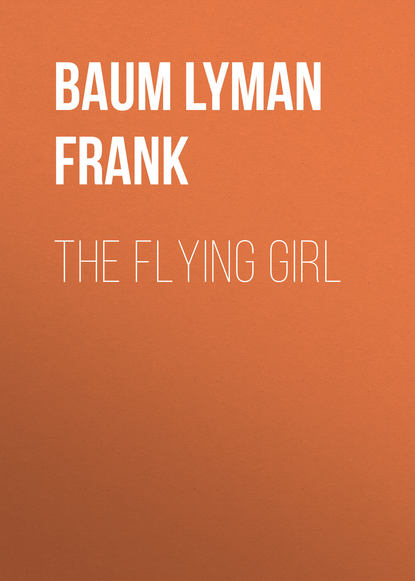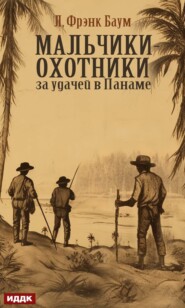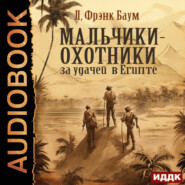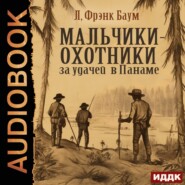По всем вопросам обращайтесь на: info@litportal.ru
(©) 2003-2024.
✖
The Flying Girl
Настройки чтения
Размер шрифта
Высота строк
Поля
It was Sybil, however, who stood staring at the aëroplane, always fascinating to her, who first discovered the cause of Steve’s catastrophe.
“See here, Daddy,” she exclaimed; “this guy-wire has been cut half through, in some way, and others are broken entirely.”
Mr. Cumberford came to her side and inspected the guy-wire. The girl was right. It was certainly odd that several strands of the slender but strong woven-wire cable had parted. Her father took a small magnifying glass from his pocket and examined the cut with care.
“It has been filed,” he announced.
Sybil nodded, but she seemed absent-minded and to have lost interest in the discovery.
“From the first I suspected the guy-wires,” she said. “When the aircraft collapsed I knew the wires had parted, and then – I thought of my clever uncle.”
Mr. Cumberford rolled down his sleeves and put on his coat.
“Three of the wires gave way,” he observed, “and it’s a wonder young Kane wasn’t killed. Come, ’Bil; we’ll go back to the hotel.”
They found the field deserted, their motor car being the last on the grounds. During the ride into town Sybil remarked:
“This affair will cause you serious loss, Daddy.”
“Why?”
“Steve can’t exhibit his device at the meet, and Uncle Burthon will be on hand to win all the laurels.”
“Don’t worry over that,” he said grimly. “We’ve ten days in which to outwit Burthon, and if I can’t manage to do it in that time I deserve to lose my money.”
Wilson came to the hotel promptly at eight o’clock for his interview with Mr. Cumberford. Said that gentleman:
“Tell me all that happened at the hangar after we left you and Reed there this morning.”
The man seemed reluctant at first, but finally decided to tell the truth. He appeared to be an honest young fellow, but knew quite well that his testimony would injure his fellow assistant.
“It was quite early, sir, when an automobile came into the field and a gentleman asked to see the aircraft. Mr. Reed was at the door, at the time, and I heard him reply that no one could be admitted. Then the gentleman said something to him in a low voice and Reed, after a little hesitation, turned to me and told me to guard the door. I did so, and the two walked away together. I saw them in close conversation for quite a while, and then Reed came back to the hangar and said: ‘The gentleman is having trouble with his motor car, Wilson, and one of his engines is working badly. You understand such things; go and see if you can help him, while I guard the door.’
“I thought that was queer, sir, for Reed is as good a mechanic as I am; but I took a wrench and walked over to the automobile, which was not a hundred yards distant. A little dried-up chauffeur was in the driver’s seat. The gentleman asked me to test the engines, which I did, and found there was nothing wrong with them at all. I hadn’t been a bit suspicious until then, but this set me thinking and I hurried back to the hangar. I hadn’t been away ten minutes, and I found Reed standing in the doorway quietly smoking his pipe. Everything about the aircraft seemed all right, so I said nothing to Reed except that his friend was a ringer and up to some trick. He answered that the man was no friend of his; that he had never seen him before and was not likely to see him again. That is all, sir. I didn’t leave the hangar again until Mr. Kane returned and took charge of it.”
Mr. Cumberford had listened intently.
“Do you know the name of the man with the automobile?” he asked.
“No, sir.”
“Describe him, please.”
Wilson described Burthon with fair accuracy.
“Thank you. You may go now, but I want you on hand to-morrow morning to assist in getting the machine back to Kane’s old hangar.”
“Very well, sir.”
Reed came a half hour after Wilson had left. His attitude was swaggering and defiant. Mr. Cumberford said to him:
“Reed, your action in filing the guy-wires is a crime that will be classed as attempted manslaughter. You are liable to imprisonment for life.”
The man grew pale, but recovering himself replied:
“I didn’t file the wires. You can’t prove it.”
“I’m going to try, anyway,” declared Cumberford. “That is, unless you confess the truth, in which case I’ll prosecute Burthon instead of you.”
Reed stared at him but, stubbornly made no reply.
“How much did he pay you for the work?” continued Cumberford.
No answer.
Mr. Cumberford touched a bell and a detective entered.
“Officer, I accuse this man of an attempt to murder Stephen Kane,” said he. “You overheard the recent interview in this room and understand the case perfectly and the evidence on which I base my charge. You will arrest Mr. Reed, if you please.”
The officer took the man in charge. Reed was nervous and evidently terrified, but maintained a stubborn silence.
“Confession may save you,” suggested Cumberford; but Reed was pursuing some plan previously determined on, and would not speak. So the officer led him away.
Next morning the wrecked aëroplane was transferred to the workshop in the Kane garden, where Wilson, under the supervision of Orissa and Mr. Cumberford, began taking it apart that they might estimate the damage it had sustained. Orissa’s face bore a serious but determined expression and she directed the work as intelligently as Steve could have done. Cumberford, who had brought a pair of overalls, worked beside Wilson and in a few hours they were able to tell exactly what repairs were necessary.
“The motors are not much injured,” announced Orissa, “and that is indeed fortunate. We need one new propeller blade, five bows and struts for the lower plane, new wing ends and guy-wires and almost a complete new running gear. It isn’t so very bad, sir. With the extra parts we have on hand I believe the aircraft can be put in perfect condition before the meet.”
“Good!” exclaimed Mr. Cumberford. “Then our greatest need is to secure a competent aviator.”
“To operate Stephen’s machine?”
“Of course. He’s out of commission, poor lad; but the machine must fly, nevertheless.”
Orissa’s blue eyes regarded him gravely. She had been considering this proposition ever since the accident.
“Our first task,” said she, “is to get my brother’s invention thoroughly repaired.”
“But the question of the aviator is fully as important,” persisted her friend. “Wilson,” turning to the mechanic, “do you think you could operate the aircraft?”
“Me, sir?” replied the man, with a startled look; “I – I’m afraid not. I understand it, of course; but I’ve had no experience.”
“No one but Stephen Kane can claim to have had experience with this device,” said Mr. Cumberford; “so someone must operate it who is, as yet, wholly inexperienced.”
“Can’t you find an aviator who has used other machines, sir?” asked Wilson. “The city is full of them just now.”
“I’ll try,” was the answer.
Mr. Cumberford did try. After engaging another mechanic to assist Wilson he interviewed every aviator he could find in Los Angeles. But all with the slightest experience in aërial navigation were engaged by the various aëroplane manufacturers to operate their devices, or had foreign machines of their own which were entered for competition. He was referred to several ambitious and fearless men who would willingly undertake to fly the Kane invention, but he feared to trust them with so important a duty.

















